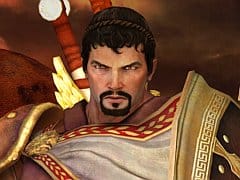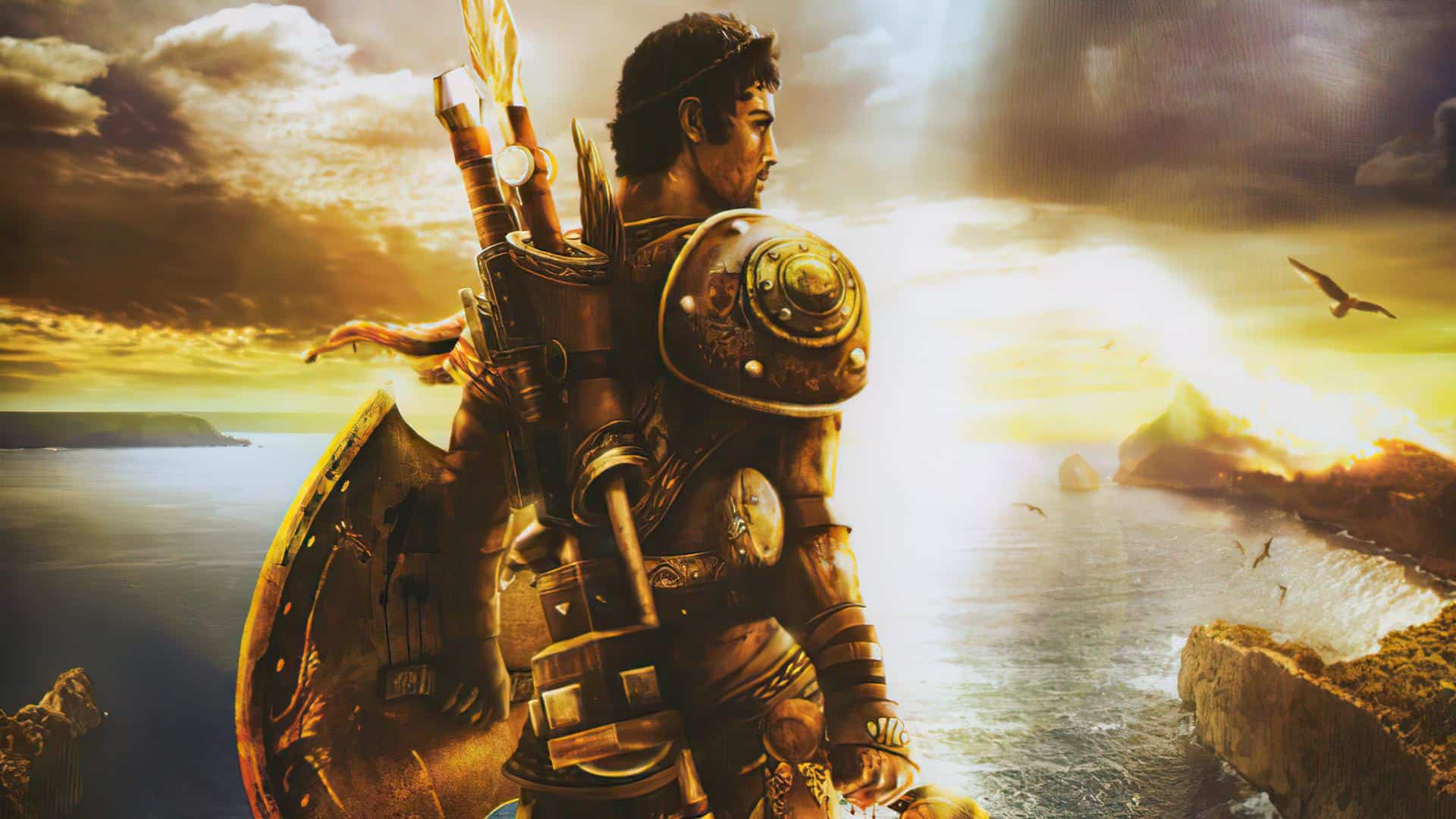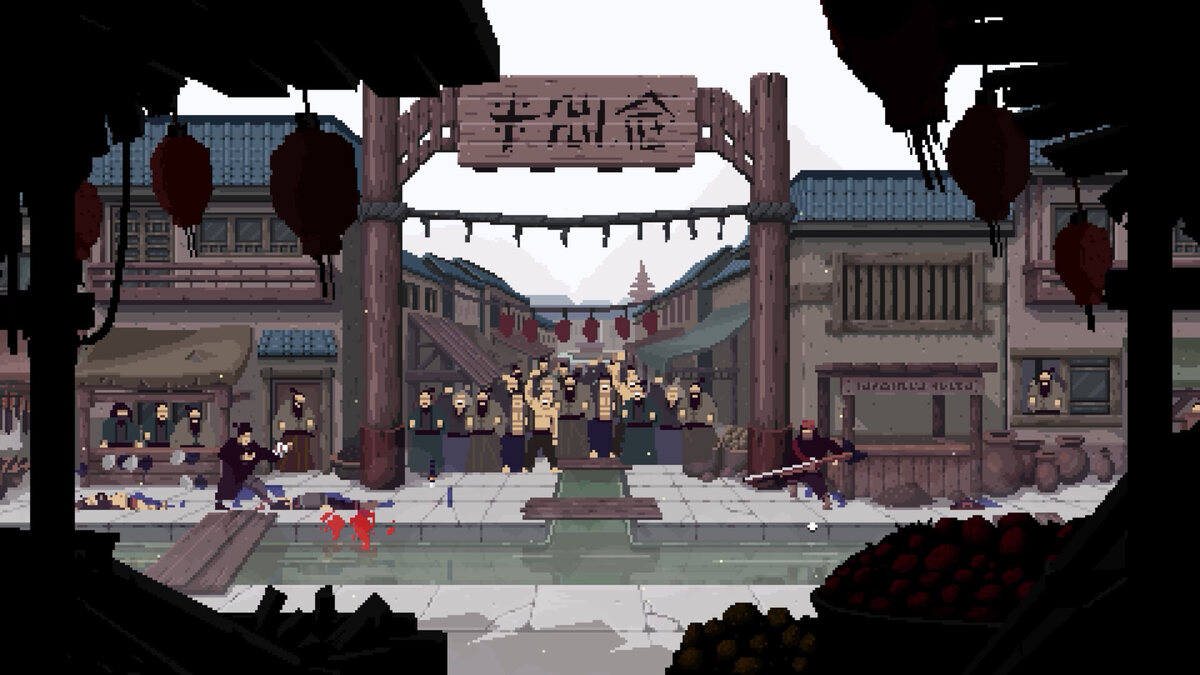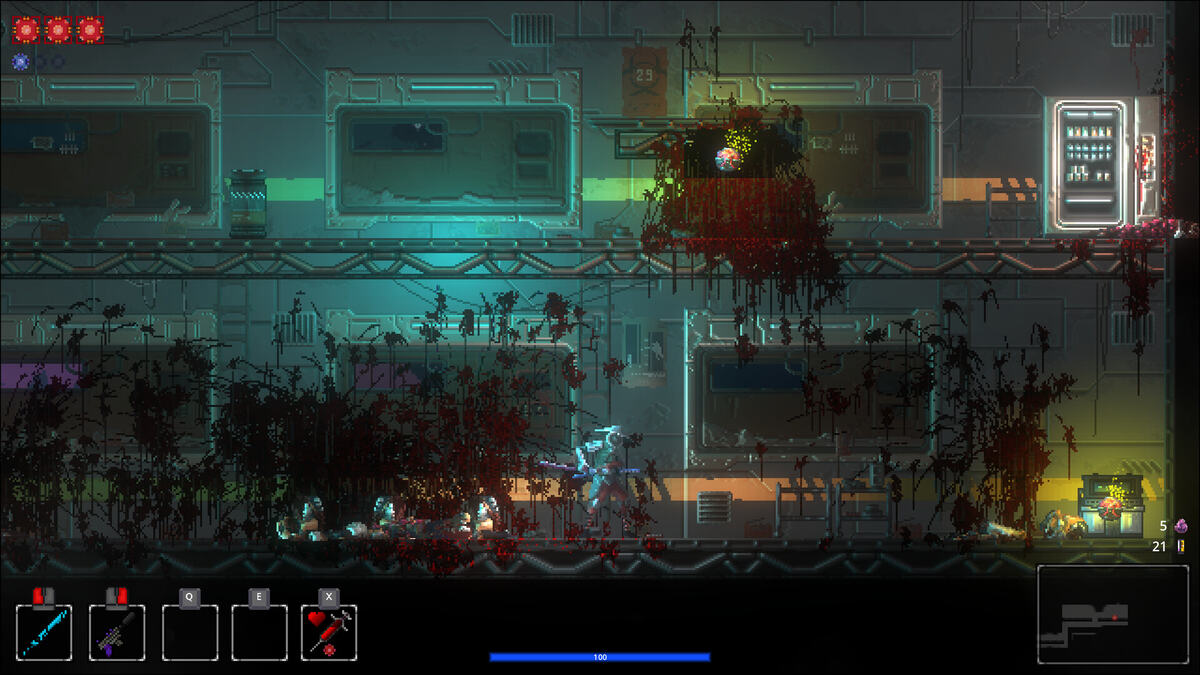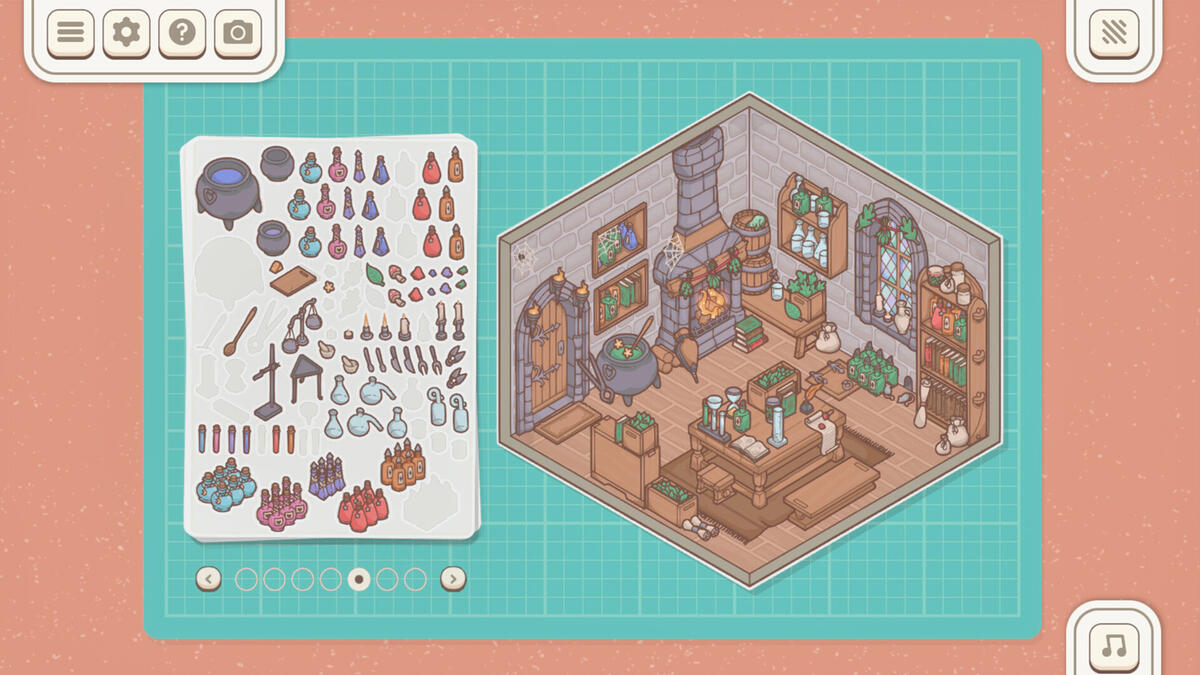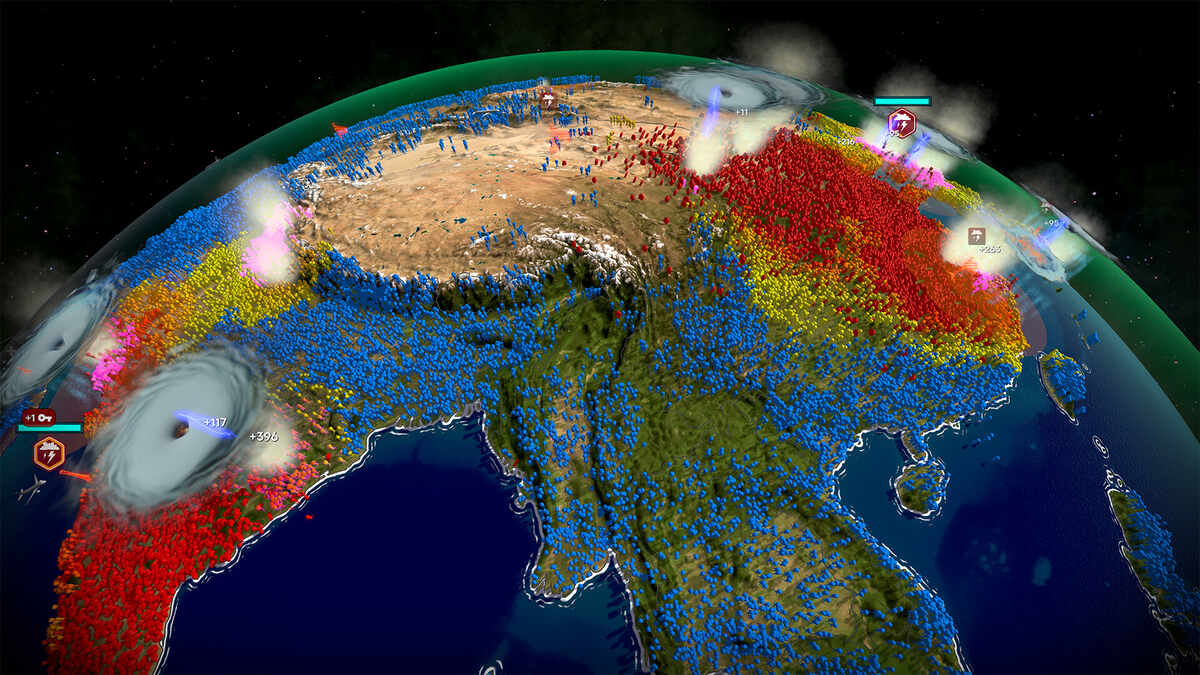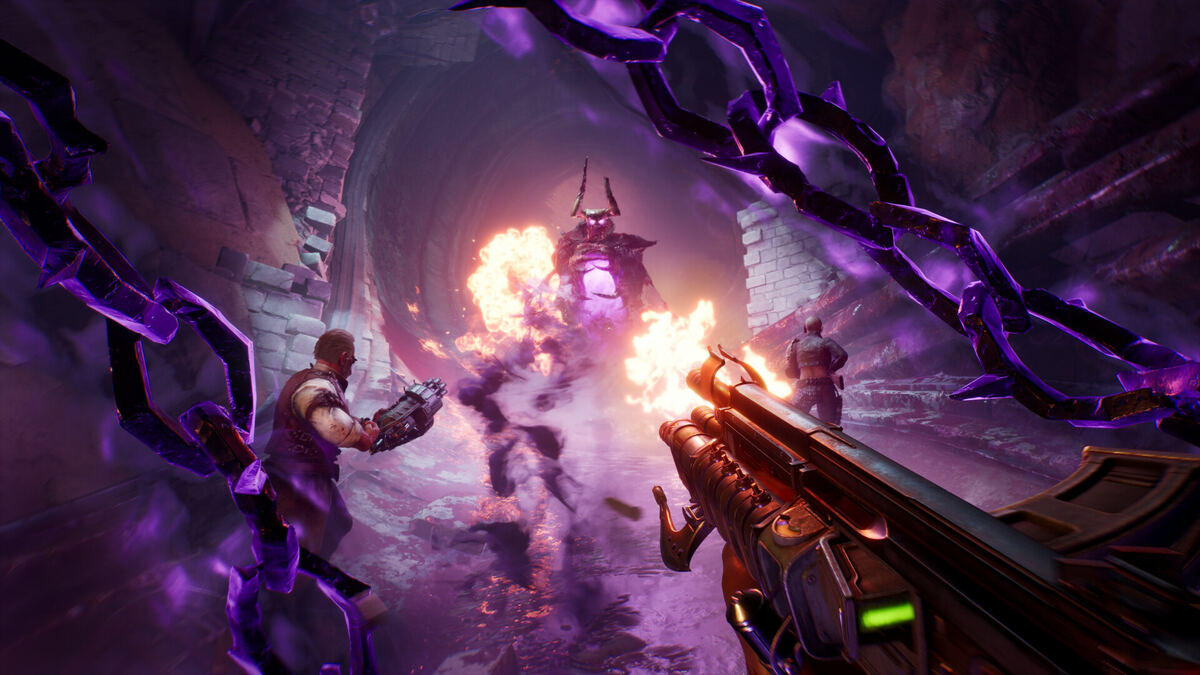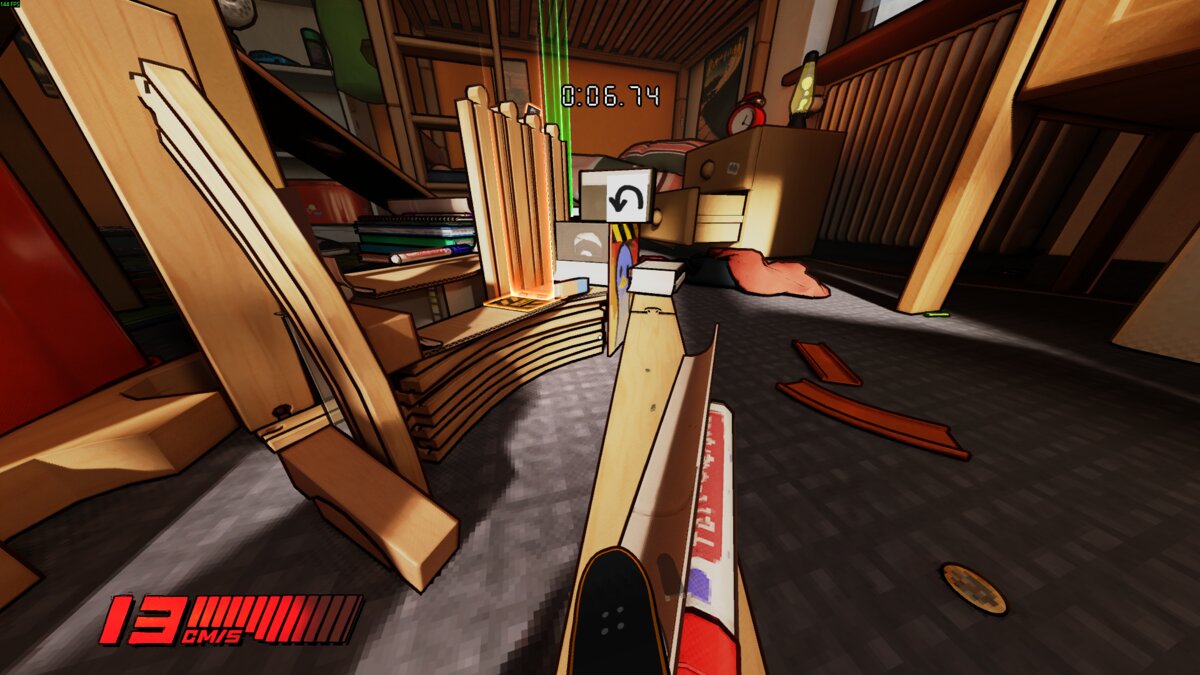You can trust VideoGamer. Our team of gaming experts spend hours testing and reviewing the latest games, to ensure you're reading the most comprehensive guide possible. Rest assured, all imagery and advice is unique and original. Check out how we test and review games here
Ed Del Castillo, president of US-based developer Liquid Entertainment, of Battle Realms, Lord of the Rings: War of the Ring and Desperate Housewives(?!) fame, can talk. Ask an innocent question, like what his issues with current RPGs are, and be prepared for a verbal bombardment. Sometimes during my interview with him, to promote his new game Rise of the Argonauts, due out on Xbox 360, PS3 and PC this autumn, I wonder if his body has somehow lost the need to draw breath. And then he stops, after about 20 minutes of solid, non-stop opinion, smiles and sucks in a great gulp of the good stuff. I decide that this is not a bad thing. Oh no. In fact it’s refreshing. All you have to do is sit back, relax and absorb.
The game sees you take control of King Leonidas lookalike Jason as he leads a team, or, as Ed calls it “the X-Men of Greek mythology,” including Hercules, Atalanta, Achilles and Pan (yes, Pan, as in the satyr from Pan’s Labyrinth) on an adventure across Ancient Greece to find the Golden Fleece and bring his murdered wife back to life. Ed isn’t aiming for much. All he wants to do with Rise of the Argonauts is reinvent, refine and re-imagine the RPG for the masses. You have doubts? Just listen…
“I think the combat mechanics in most RPGs suck ass! There’s no other way to say it. This concept that I can trade blows ad infinitum with no impact until the last blow is just something that’s bizarre to me. I grew up with D&D since I was 12, so I’m very familiar with this hit point concept, but from a visual storytelling perspective, from a cinematic perspective, you look at a movie and they don’t do that in a movie. It’s like chopping down a tree. How is that fun? It’s not fun to watch someone chopping down a tree. And that’s what we force our player to do. We force them to watch him chop down another flesh tree.”
Surely Ed’s talking about Blizzard’s fantasy MMO phenomenon World of Warcraft? “Any RPG at all,” he says. “They all have health bars. It’s in every one! So we said look, step one, we’re lethal combat. We’re going to take our inspiration from the movies. When people don’t die, it’s not because they have more health, it’s because they parried, they dodged, they blocked, they moved out of the way, they healed themselves with some magic, any good reason, but not no reason, which is what currently exists. Now, that obviously has some exceptions, like Jason. Heroes in movies have a nasty tendency of being able to survive all sorts of s$!t. They get stabbed and they live, they get shot and they don’t die. So heroes have this resilience. So yeah, we gave Jason health, we break the rules, but we break the rules in a very specific and a very inspired way, as opposed to, oh well, everybody else does it like this. We thought about it. Once upon a time we had Jason die with one hit. It wasn’t very fun, let me tell you! It was very Bushido Blade.”
In Rise of the Argonauts you’ll be able to map special God abilities to the d-pad so that they can be triggered on the fly. Before the interview I catch a glimpse of a few of them. One, called the Gates of Tartarus, creates a black hole, sucking enemies into it when Jason knocked them off their feet. Another, called Storm of Spears, sees the deadly blades come down like acid rain. The Armour of Apollo grants temporary invincibility. I see Jason decapitate one opponent with a devastating slow motion hit to the head with his mace and then, in the same movement, draw his spear from behind his back to impale an onrushing assailant. Then, as he is surrounded, his shield, which grants free blocks if you position yourself in just the right position, deflects countless sword strikes, each one sending sparks flying. And then, when the time is right, Jason draws his sword, flies forward and literally tears someone in half, the upper body slowly moving away from the lower in gruesome, gory detail. Remember the scene in 300 when the Captain loses it? It’s a bit like that. It’s very visceral, smooth, bloody and brutal, everything you’d associate with Bushido Blade, in fact, except without the one hit kills.
/https://oimg.videogamer.com/images/8c4e/argonaughts2.jpg)
“The choices we’ve made, you’re going to get more God abilities than you can map to a d-pad. But we said fine, that’s OK. We’re going to let you map it to the d-pad any way you want and you’re going to have four active powers at all times. You want more you can put another four on there but we wanted the speed. We gave up the list menu. Yes we took something away from the player. We said you know what player? You will not have instant access to all of your powers. But you never had that before anyway. You had intermediate access to your powers. We’re giving instant access to some and lengthy access to others. We’ve taken out this weird intermediate stuff. I think players are going to have their favourite powers anyway. You can hit those, no stopping, no changing out of the world, no cessation of the action, it feels so much cooler.”
I’m impressed, as you might have guessed. I’m looking forward to the potential of the game. But I notice something. Something that’s not right. Realisation kicks in. Apart from the fading in and out of the occasional Deed, Rise of the Argonauts’ experience points replacement that can be traded in at God shrines for character upgrades, I can’t see anything but Jason, other NPCs and the environment on screen. There isn’t a health bar or mana bar in sight, something a bit jarring for an RPG. But, according to Ed, this is completely deliberate.
“Every time I look at a health bar I’m reminded that it’s a game. So take away the health bar. There’s something subconsciously distracting about having to constantly dart your eye up into the upper corner, or into the lower corner, or any corner. Film doesn’t do that. Film keeps your attention to the centre. I want to do the same thing with games. It’s more powerful when you’re staring at what Jason is doing all of the time. When we do it we want it to be temporary. There’s time when Deeds come on, you don’t have to look at those. They’re there to let you know what happened. But you don’t have to read them right then. It’s like when IM pops up in your Windows, you don’t have to read it right then. It was just a way of telling you, hey, you got a Deed. You’re going to come almost in your peripheral vision to recognise those as, oh I got a Deed, I wonder what that was? When I get to a shrine I’ll go check it out. I don’t have to stop – I got a Deed, where should I spend it right now?
“There are some things you are going do in the world that will give you God favours on the fly. You’ll do some cool move for Aries, and all of a sudden boom Aries will give you some God favours right away. We have symbols for that, and those symbols will come on and fade off, just like a Deed. Nothing that you have to watch because that’s just distracting. We’ve really tried to minimise HUD. All of the guys who can take multiple hits have damage states on their bodies. Even the guys that only take a few hits they have a wounded state. You hit them and they’ll get wounded and they’ll change their AI and they’ll jab at you but they won’t be really fighting hard and you’ll be able to kill them. That’s the way we see it. That’s the way we’ve been taught. When we read books, when we watch a play, when we watch a movie, that’s a language we’ve learned, why are we making people learn a new language?”
/https://oimg.videogamer.com/images/a652/argonaughts3.jpg)
Whether you agree with Ed on the whole “the combat mechanics in most RPGs suck ass!” thing, what can’t be denied is that it’s a rare occasion indeed when you see anything bordering on realistic fighting across the RPG genre. Trading blows with a giant dragon in WoW ad infinitum might be fun, but, when you take a step back, it does look a bit ridiculous. In that sense, Rise of the Argonauts’ combat looks nothing like the combat in WoW, or Oblivion, or Mass Effect. In fact, I would say it looks more like the action-oriented combat of God of War, or Devil May Cry.
Tearing up the RPG combat rulebook is, however, just the beginning for Ed’s revolution. The genre’s failings do not end there. “If you take anybody in any RPG, pick any RPG that exists today, take any human being, including the best RPG player, you put him on a machine, you say play this RPG, you’ve got two stopwatches, one in each hand, you don’t tell him you’re doing it, that’s the key, and you turn this stopwatch on whenever he’s playing the game and you turn this one off and this one on whenever he goes into a menu, you’ll find that this stopwatch, the second one, always has more time on it. You will spend more than 50% of your time in menus in all RPGs. You can’t find a single one that won’t do it. I think that’s an enormous mistake. This is part of the reason why RPGs are so inaccessible to the mass market, that they don’t want to dive into RPGs. They feel like they have to learn so much and they have to constantly be learning so much to play the game. We’ve streamlined the hell out of that. We want to give players the option to use those menus but we’re going to push them all to the Argo. We’re going to make it so that their gameplay experience is not hampered midstream. It’s a choice. It’s like going to a closet. That’s your choice to go to that closet. It’s not like every time you do something the closet appears right in front of you and, oh I have to organise the closet now? F$!k! Or even worse, so I’m in the middle of a fight, oh I want to use a power. Oh pause the fight, oh cycle through menus, oh pick the power, oh look I’m back in the fight! Oh I just fired that power and I want to use another one right away! Oh, get back in the menu, oh pick the one that I want, oh confirm the choice. It’s super slow. Why am I doing that? Every time I do that it breaks my fiction, it pulls me out.”
And breathe. Poor RPGs. Ed’s really giving them a kicking. But it’s fun watching him do it. His arms are never motionless, he often jumps out of his seat to demonstrate the combat better, sometimes pretending to stab me in the face with a spear. It’s as close an interview gets to a white-knuckle roller coaster ride. And we all know why we like them – the terror gets the adrenaline flowing.
The car climbs 100 feet and drops, going from 0 to 80 in two seconds flat. “Dialogue sucks in most RPGs. It’s just gates. You button mash through it because you don’t even care. It’s just you know you have to get through this dialogue to be able to get to the next quest. Why isn’t that worthwhile? And why is it that the guy is always standing there waiting for me? Why is it that the guy has nothing better to say to me than what do you want to buy? Why is it that these people aren’t people? That they’re vending machines and not really people?”
Quite. So, Ed, what are you going to do about it? “Anybody that gets a name in our game gets a character arc, gets something that happens to them. It’s good storytelling that that becomes part of the main narrative. They’re all throwaway characters anyway, why not use them to help the player move the story along?”
/https://oimg.videogamer.com/images/330e/argonaughts4.jpg)
It doesn’t end there. In Rise of the Argonauts, Jason will have a conversation wheel with four options to choose from, each one representing one of the game’s Gods: Apollo, patron of the shield and healing; Aries, who likes you to go in first ask questions later; Athena, righteous and just; and Hermes, who’s the smart one. Instead of having one answer lead to one benefit, another to another and one leading to nothing, each answer will curry favour with the particular God it’s associated with, and each will lead to its own benefit. Each God has its own skill tree, for example, currying favour with Apollo will lead to greater healing powers and bonuses to resistance. Hermes leads to improved sword fighting and bullet time combat powers, Aries will make you better with the mace and fighting groups of enemies at once and Athena improves your ability with the spear and one on one fights.
That’s enough of me speaking, I’m missing Ed. “The moment I realise that there is a right answer and wrong answer to dialogue I cease caring about the answer. I care more about the reward that I’m going to get for answering the right way than I care about what I’m saying. This was something I felt recently in an RPG that will remain nameless. There was a good guy answer and a bad guy answer and there was this balanced answer in the middle. Well, hey guess what? I like to play balanced characters. I like to seek balance when I play. I was playing through with this balanced character and I was like, why am I not getting any of the good guy rewards or the bad guy rewards? I go to GameFAQS and I read about it and I’m like, holy s$!t! The middle of the road answers, the neutral answers, the balanced monk-like answers don’t get any reward. You have to be a good guy or a bad guy to get a reward. It’s like, well that’s f***ed! Why did you give me this choice that isn’t really a choice? You’re basically saying I’m going to have a harder time playing this game because I’m playing it the way I want to play the game and not the way you want to play it.
“I really think it’s a huge shift in gameplay, this concept of rewarding the player equally for his choices, and differently. The concept of having four different Gods and you proceeding down these skill trees based on the choices you’re making in dialogue and the choices you’re making in combat is something that I think is very novel. When a player says to himself you know what? Whether I punch this guy in the face or I say I’m sorry I’m going to get the same amount of reward but in two different locations. Now he feels like he’s got no wrong answer and he still feels like it’s a cool choice and now he’s back to playing who he wants to play. That’s a very significant piece.”
And breathe. That “nameless” RPG Ed’s talking about is clearly BioWare’s sci-fi epic Mass Effect, a game I myself gave 10/10 in our review. You don’t have to be a rocket scientist to deduce that it’s the subject of many of his problems with the genre. The three-way dialogue, the inventory, the stop and start combat. I’m as sure of it as I am of the sun rising tomorrow, and I’m determined to get him to admit it.
“I think BioWare is an amazing company,” begins Ed. “But I think that Mass Effect has the DNA of most RPGs. I think that they made incredible strides with making characters more believable and having you have more interesting character drama, but I think they rely on the, I levelled up and I get to buy +2% to my accuracy and that really doesn’t matter because the monster has +4% to his accuracy because he’s levelling too. Or even worse the weapons are so out of balance that if I’m using a pistol I can kill stuff better than I can kill it with an assault rifle. Again, Mass Effect was indeed very successful, I think that’s largely down to our currently marketing driven game economy, but I think it was an excellent product. Oblivion is another example; I think there are millions of people that really appreciated Oblivion. There’s always going to be a market for those types of games out there. I just think there’s a future for RPG that isn’t just thousands of systems just layered on top of each other. What we’re doing is going to broaden RPGs appeal and maybe pull in some action gamers, maybe pull in some people who wouldn’t have played an RPG before, hopefully. Because those RPGs also have some legacy negativity, like, oh Jesus, hours to play. Oh Jesus, I got to play for five hours before I feel like I levelled, before I feel like I did anything. That keeps people away, people who don’t have the time for that. They get scared of that. What we’re doing is saying, hey, you know what, this is the kind of RPG you can jump in for half an hour and feel like you got something done. This is an RPG that forgives you for walking away, not punishes you.”
/https://oimg.videogamer.com/images/a3f4/argonaughts5.jpg)
I’m interested in Ed’s thoughts on Mass Effect, a game I absolutely adore, mainly because it’s just so damn cool. So I probe. If you were reviewing Mass Effect what would you have given it?
“I think it’s fair to say I wouldn’t have reviewed it as highly as most people reviewed it. I don’t know if I can put a number on that. I’d get hatred! This gets printed and BioWare’s like, who the hell is Liquid?! Who the f$!k is Ed?! Raaarrrrr! You turn off the recorder and I’ll tell you what I think off the record.”
I’m tempted to. I really am, because Ed clearly has a passion for the RPG, and I want complete honesty. But, like much of what we game journalists hear in whispered tones in dark alleys, it’s often useless from a publishing point of view because it’s off the record. So I keep the tape recorder going, and dig some more.
Despite the problems you talk about, Ed, Mass Effect still enjoyed great sales and great scores. How do you explain that? “You’ll notice that I never said this is why RPGs are failures,” he says. “I just think this is a way to do something better. Here’s a positive way of saying it. If games like Mass Effect did some of the stuff that I was talking about they would have sold even more than they sold. That’s what I’m trying to say. I’m not trying to say that these games are not viable. I feel that we can do even better. Why settle for good when we can have great?”
Wow. That’s one hell of a claim. But I’m starting to see what he means. He’s not dumping on Mass Effect per se. Well, he probably is. But what he’s trying to say is that Mass Effect and other modern RPGs are still stuck in the dark ages, and would enjoy much greater commercial success if they were more accessible and less hardcore. Still though, I’m shocked. Are you sure, Ed?
/https://oimg.videogamer.com/images/d5de/argonaughts6.jpg)
“I might be wrong but I have a real solid belief that people are going to gravitate to something that’s a little easier to play. And I’m not saying easier to play from a how many buttons or whatever. I mean easier to play in that it lets you get into it and you don’t have to be an RPG gamer to play it.
“Just look at how long it took you before you finally got to play Mass Effect. I mean the whole front end, the whole telling your background, the whole picking your character and God forbid you should start customising your face. That alone would drop out more casual players. You have to be hardcore to want to do that.”
Hardcore, really, is the key word when it comes to Rise of the Argonauts, a game that feels less and less like an RPG the longer the interview goes on. Ed is completely rejecting the notion that role playing games are for hardcore gamers only. He believes the genre has a more mass market future, and he’s willing to try to realise that.
“We try to pace the game in one hour chunks, because we want people to be able to do their homework and go out and play. There’s always this last interview question in many of these interviews which is, do you have anything else you want to say to your fans? I say, go out. Pick up a football. Go and do something else. Because if you’re reading this, it means you play way too many games. Which is OK, it’s OK to play games. You can play too much football, you can do too much studying, you can eat too much, you can sleep too much, you can do everything too much and we have to recognise that you can play games too much.”
What I’m loving about Ed is the fact that he’s not simply ranting about RPGs and what they do wrong, something any one of us can do for hours on end on forums across the Internet. Ed’s actually trying to do something about it. He’s come up with ideas, gameplay mechanics and systems which he thinks will lead to something that will change the way RPGs work. He’s having a go. And, whatever your opinion of his opinions, you have to admit, he’s got some balls.
I decide to wrap up the interview, the “have you got anything else you want to say to your fans” question stricken from the list. The roller coaster has come to an end, and I’m exhausted and thrilled all at the same time. And now I find myself having to come to some conclusion about how Rise of the Argonauts is shaping up. I decide the graphics are great, it has some cool ideas and the combat looks like a lot of fun. It may or may not turn out to be the RPG that pushes the boundaries of its genre. It may or may not enjoy a 10 out of 10 review score. It may or may not end up better than Mass Effect. But as I shake Ed’s hand and thank him for his time, I know one thing’s for sure: with this guy in charge the RPG is in for one hell of a ride.
Rise of the Argonauts is due out on Xbox 360, PS3 and PC this autumn.
